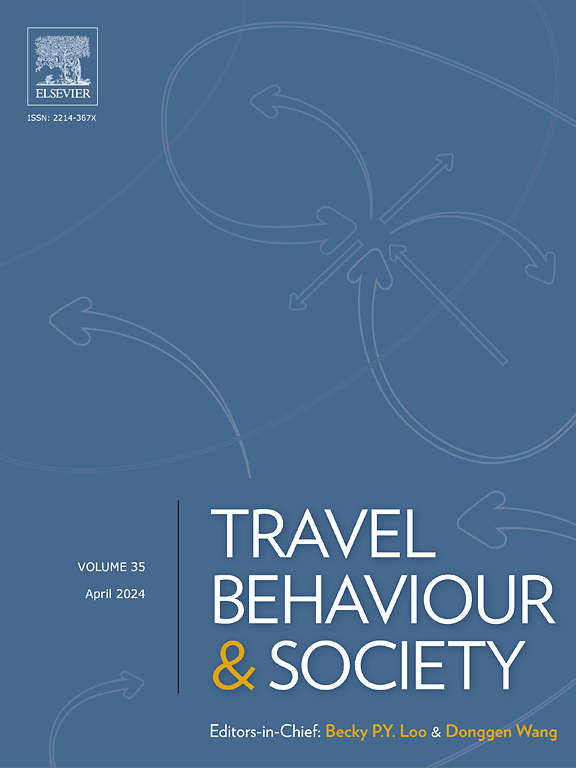Does Car Dependence Make People Unsatisfied With Life? Evidence From a U.S. National Survey
IF 5.1
2区 工程技术
Q1 TRANSPORTATION
引用次数: 0
Abstract
In the United States (U.S.), cars play a key role in facilitating mobility. Americans heavily rely on their cars for daily travel due to the benefits of access, convenience, comfort, and autonomy that private vehicle travel offers. However, the potential negative implications of high rates of car ownership and use for wellbeing, sustainability, and social equity have sparked the interest of many scholars. We contribute to these lines of inquiry by examining whether and if so, how car dependence relates to people’s satisfaction with life. Our data come from a national survey with a representative sample (n = 2,155) of U.S. adults living in urban and suburban areas. Using descriptive statistics and multivariate regression models, we find that there is a threshold effect of car dependence on life satisfaction. Our results show that beyond a certain point, increases in car dependence yield a decrease in people’s satisfaction with life. For instance, we find that, in a typical week, relying on a car for more than 50 percent of the time for out-of-home activities is associated with a decrease in life satisfaction. These findings suggest that planners and decision-makers should promote multimodality and land use patterns that may help to reduce car dependence and its potential negative effect on subjective wellbeing (SWB).
对汽车的依赖会让人对生活不满意吗?来自美国全国调查的证据
在美国,汽车在促进流动性方面发挥着关键作用。由于私家车出行带来的便捷、舒适和自主性等优势,美国人在很大程度上依赖汽车进行日常出行。然而,汽车的高拥有率和使用率对幸福感、可持续性和社会公平的潜在负面影响引发了许多学者的兴趣。我们通过研究汽车依赖性是否与人们的生活满意度相关,以及如果相关,又是如何相关的,为这些研究方向做出了贡献。我们的数据来自一项全国性调查,调查对象是居住在城市和郊区的美国成年人,样本具有代表性(n = 2,155 人)。通过描述性统计和多元回归模型,我们发现汽车依赖对生活满意度存在门槛效应。我们的结果表明,超过一定程度后,汽车依赖度的增加会导致人们对生活满意度的下降。例如,我们发现,在一个典型的星期里,如果有 50% 以上的时间外出活动依赖汽车,生活满意度就会下降。这些研究结果表明,规划者和决策者应推广多模式和土地使用模式,以帮助减少对汽车的依赖及其对主观幸福感(SWB)的潜在负面影响。
本文章由计算机程序翻译,如有差异,请以英文原文为准。
求助全文
约1分钟内获得全文
求助全文
来源期刊

Travel Behaviour and Society
TRANSPORTATION-
CiteScore
9.80
自引率
7.70%
发文量
109
期刊介绍:
Travel Behaviour and Society is an interdisciplinary journal publishing high-quality original papers which report leading edge research in theories, methodologies and applications concerning transportation issues and challenges which involve the social and spatial dimensions. In particular, it provides a discussion forum for major research in travel behaviour, transportation infrastructure, transportation and environmental issues, mobility and social sustainability, transportation geographic information systems (TGIS), transportation and quality of life, transportation data collection and analysis, etc.
 求助内容:
求助内容: 应助结果提醒方式:
应助结果提醒方式:


